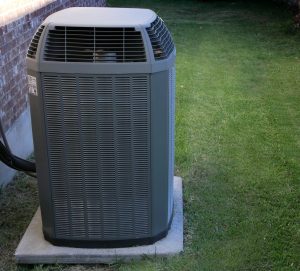While a humming AC unit in San Ramon is a familiar sound during hot weather, there’s a difference between steady operation and what’s known as short cycling.
If your air conditioner seems to be turning on and off rapidly, failing to keep your home cool, this might be a sign of short cycling. Let’s delve deeper into what short cycling means, the problems it can cause, and how a professional HVAC technician can help.
What Is Short Cycling?
An air conditioner cools your home through a cycle. The compressor circulates refrigerant, absorbing heat indoors and releasing it outdoors. Normally, this cycle continues until the desired temperature is reached, then the compressor shuts off and waits until it’s needed again.
Short cycling disrupts this natural rhythm. The compressor shuts off prematurely, before completing a full cooling cycle. This rapid on-and-off pattern can leave your home feeling uncomfortably warm and put unnecessary strain on your AC unit.
Signs of Short Cycling
How can you tell if your air conditioner is short cycling? Here are some red flags to watch out for:
- Rapid Cycling: The most obvious sign is frequent on-and-off cycles. If your AC unit turns on and off every few minutes, it’s likely short cycling.
- Uneven Cooling: Short cycling can lead to uneven temperatures throughout your home. Some rooms might feel cool while others remain uncomfortably warm.
- Increased Energy Bills: The constant starting and stopping of the compressor uses more energy, resulting in higher electricity bills.
- Frozen Coils: In some cases, short cycling can lead to the evaporator coil freezing due to insufficient time for proper defrosting.
Causes of Short Cycling
Several factors can contribute to short cycling:
- Dirty Air Filter: A clogged air filter restricts airflow, causing the system to overheat and shut off prematurely.
- Low Refrigerant Levels: Leaking refrigerant reduces the system’s ability to absorb heat, leading to short cycling as the compressor struggles to maintain temperature.
- Blocked Ducts: Blocked or leaky ducts prevent proper air circulation, tricking the thermostat into thinking the desired temperature is reached, causing the AC to shut off prematurely.
- Oversized AC Unit: An air conditioner too large for your home cools the space too quickly, then shuts off before properly dehumidifying the air, leading to short cycling.
- Faulty Thermostat: A malfunctioning thermostat might send inaccurate temperature readings, causing the AC to shut off before reaching the desired setting.
Benefits of Addressing Short Cycling
By addressing short cycling, you’ll enjoy several benefits:
- Improved Comfort: Consistent cooling throughout your home creates a more comfortable living environment.
- Reduced Energy Costs: A properly functioning AC unit operates efficiently, leading to lower energy bills.
- Extended AC Lifespan: Fixing the underlying problem prevents further strain on your AC unit, extending its lifespan.
Don’t Let Short Cycling Keep You From Cool Comfort
Short cycling can be a frustrating and expensive problem. But don’t despair! By recognizing the signs and contacting a professional HVAC technician for diagnosis and repair, you can ensure your air conditioner operates efficiently, keeping your home cool and comfortable all summer long.
Remember: While this blog post provides general information, a professional evaluation is crucial for accurately diagnosing and resolving short cycling in your AC unit. Contact us today to schedule an appointment and enjoy a cool, comfortable summer!
Schedule an appointment with Comfy Heating & Air Conditioning Inc. today.

